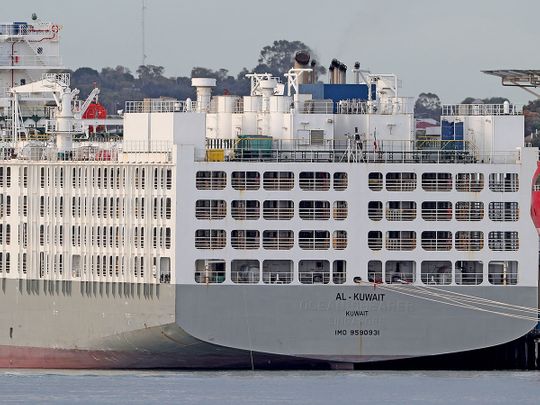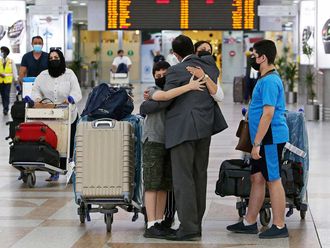
Sydney: A Kuwaiti livestock ship, without animals aboard, was being held off Australia's west coast after six crew members tested positive for the new coronavirus, authorities said on Tuesday, heightening concerns over how arrivals by sea are handled.
The Al Kuwait left the Middle East on May 7 and docked near the city of Perth on May 22 after telling the Australian immigration and agriculture authorities that some crew members had raised temperatures, Western Australia Premier Mark McGowan said.
Six crew later tested positive for the new coronavirus and were taken to hotels on land for quarantine while the state police commissioner asked the Australian Border Force and Department of Agriculture why the ship was allowed to dock.
"Clearly this is not good," McGowan told reporters in a televised news conference.
"We want to get to a resolution as soon as possible so that the ship is in a position to leave the port." The Border Force said in a statement they "completed all customs and immigration related clearances" and received "no reports of illness on board the vessel on the day of or prior to its arrival in port." The Department of Agriculture was not immediately available for comment.
Managing boat arrivals became a sore point for Australia after a cruise ship unloaded hundreds of passengers infected with COVID-19 in Sydney in March. Nearly a quarter of Australia's 102 COVID-19 deaths have been linked to the ship, which is the country's biggest single source of infection.
COVID-19 is the respiratory disease caused by the novel coronavirus.
The Al Kuwait's owner, the Kuwait Livestock Transport and Trading Co, directed Reuters to Australian Livestock Exporters' Council Chief Executive Officer Mark Harvey Sutton who declined to comment on the communications between government agencies and the ship.
"All the protocols and processes have been followed," Sutton said.
He added that the exporter, Rural Export & Trading (WA), had planned to carry 56,000 sheep to the Middle East. The sheep were being held in a feed lot.












